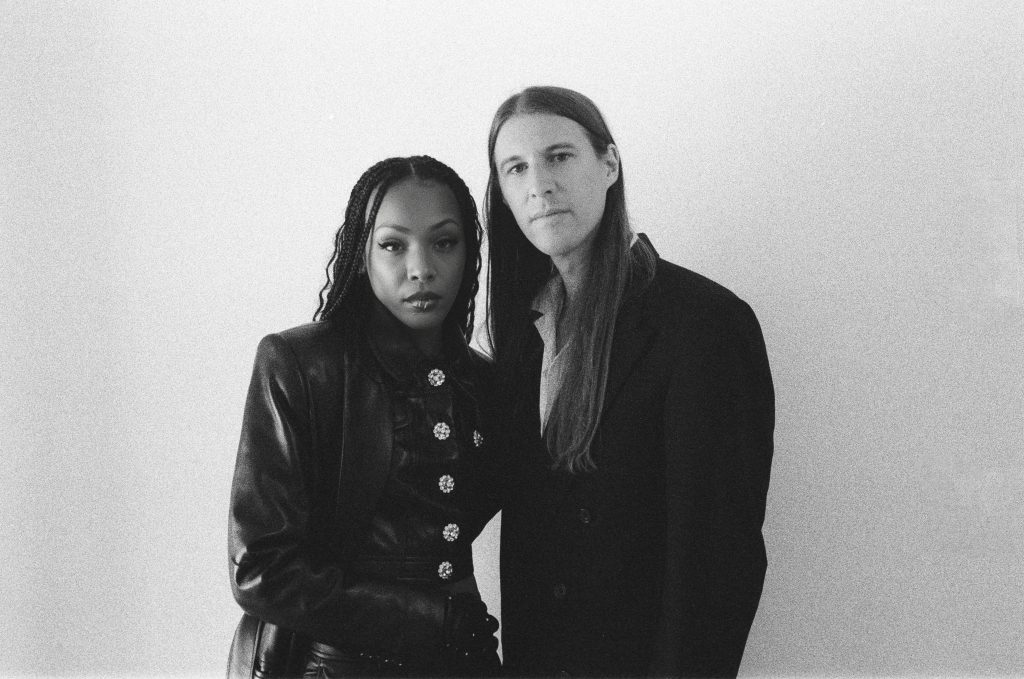Review: Dawn Richard & Spencer Zahn’s ‘Quiet in a World Full of Noise’

The singer and composer scale down their collaboration for a grief-saturated set of songs filled with austere piano melodies and diaristic reflections.
Grief saturates Dawn Richard & Spencer Zahn’s Quiet in a World Full of Noise, as integral to the record’s beauty as ghosts are to a gothic novel’s tone. The air between Richard’s soulful, diaristic lyrics and Zahn’s austere piano is charged, pulled taut as wire. The silence is louder than the noise; we feel absence keenly, an imprint left behind by loss.
This austerity is a departure for the duo, whose 2022 Pigments incorporated saxophones, autotune, and looping synths for large, arcing compositions. Here, Richard and Zahn have moved from the cosmos into a snowglobe, downsizing on instrumentation and vocal bravado. Where Pigments was soaring, Quiet is, well, quiet—impressions delivered like elegies. Richard and Zahn are willing to play with space here, where notes are often bookended by reverberant silences and the moments of suspension feel just as meaningful as Richard’s throaty confessionals.
There’s a clear through-line between these disconcertingly intimate songs and the personal grief that informed them. Richard was reared in New Orleans, a city that bares its own violent past to anybody willing to book a walking tour. Phantoms are woven into the region’s appeal. She made her big break on MTV’s Making the Band, a reality TV vehicle that manufactured the band Danity Kane in 2005. During this time, she alleges she was assaulted and abused by Diddy; in the interceding years, between releasing six solo albums as an indie R&B artist, her musician father was diagnosed with cancer and her cousin Cisco was fatally shot seven times. Multi-instrumentalist and composer Zahn wrote the melodies on the heels of a break-up, using an unconventionally tuned piano in an upstate New York studio.
These tragedies are laid bare, discussed with minimal allusion, on Quiet. “Traditions,” a wistful and doting ode to family, fuses Richards’ tightly-observed love for her kin with Zahn’s meandering piano. The record is at its most haunting when we feel closest to these memories, like voyeurs into the past: the way Richards’ mother leaves a brick in front of the door, a voodoo practice; the way her brother wears a certain pair of shoes to lend the Saints luck.
On the moving “Life in Numbers,” resonant piano chords give way to Richard’s near-whisper. Is it a prayer or a possession? It feels like we’re right there with her, grasping at reality. “Two times is the amount of texts I sent to Cisco before he got gunned down,” she rasps into the microphone at the end of the song, before Zahn’s fingers dance over the keys, cycling through the same few plaintive notes.
It’s difficult to reach this gravitational pull with perfect consistency. Twelve straight tracks ask us to lean in for a whispered confession, and occasionally, this pose grows wearisome. “Diets” is one of the album’s least effective areas, a “fuck the haters” ballad that doesn’t quite know what it wants to be. “I got rid of all the people who weren’t good for me,” Richard insists. “I drop my fake friends like I drop calories.” It’s the rare instance of electronica on the record, a synth line barging in like the Kool-Aid Man towards the end, and it straddles the line between bombast and poignancy awkwardly.
The gulf between the description of an experience and an experience itself is often vast, especially the sort of tragedies that divide life into a distinct before and after. The entire world looks different in mourning, from a pair of Saints sneakers to a beloved face. Every great loss has its own heft and dimension—this is what so much art seeks and fails to communicate. Quiet, at its best, transcends platitudes and comes close to the essence of these experiences. Here, Richard and Zahn have captured grief like a carved piece of obsidian—glossy, beautiful, and sharp.